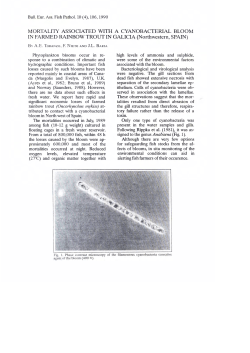
Masato Odawara, MD, PhD - ACN2015 12th Asian Congress of
ACN2015 12th Asian Congress of Nutrition Luncheon Seminar LS4 Friday, May15, 2015 12:30 - 13:30 Venue: Room 304, Pacifico Yokohama Date: Luncheon Seminar Anti-dyslipidemic and anti-atherosclerotic effects of fish oil and its mode of action Chair: Masato Odawara, MD, PhD Professor, Department of Diabetology, Metabolism, and Endocrinology, Tokyo Medical University Speaker: Ichiro Tatsuno, MD, PhD Professor, Center of Diabetes, Endocrinology and Metabolism, Toho University, Sakura Medical Center Inuit are people indigenous to the Arctic region; they have been known to have a low incidence of lifestyle diseases such as myocardial infarction. In 1971, Danish epidemiologists Dyerberg and Bang reported that a high dietary intake of omega-3 polyunsaturated fatty acids [eicosapentaenoic acid (EPA)/docosahexaenoic acid (DHA)], which are major components of fish oil, contributed to such outcomes. The Japanese are well known to prefer the consumption of fish. In this case, has fish oil been helping the Japanese to stay healthy? To answer this question, the first epidemiological survey was conducted in Chiba, Japan among fishermen living in Kawazu in the Katsuura city and farmers around Fujigokoro in the Kashiwa city. This survey demonstrated that the fishermen consumed three times more fish than the farmers (average of 2.6 g/day as EPA) and that the plasma triglyceride level in the fisherman was approximately half of that in the farmers. The incidences of vascular disease and cerebrovascular disorder in the fishermen were also significantly lower than that in the farmers. This research continued for several years and revealed that the incidence of cardiovascular events in the fishermen increased when the amount of annual EPA intake decreased among them because of the poor catch of bonito. Although omega-3 polyunsaturated fatty acids have been well known to improve the lipid metabolism profile, as represented by the decrease in plasma triglyceride level, their anti-inflammatory effect has also been attracting attention. A group of researchers from Harvard University discovered that new metabolites (e.g., resolvin and protectin) are produced from omega-3 polyunsaturated fatty acids and further demonstrated that these metabolites act as potent anti-inflammatory agents. Within 40 years since the initiation of research on fish oil, advancements in science have been shedding light on omega-3 polyunsaturated fatty acids, and various important roles of fish oil, omega-3 polyunsaturated fatty acids, in biological homeostasis and health management have been continuously revealed. Co-sponsored: 12th Asian Congress of Nutrition Luncheon Seminar Takeda Pharmaceutical Company Limited
© Copyright 2025





















